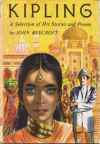 Did I really say I would read this book soon? The Internet doesn’t forget.
Did I really say I would read this book soon? The Internet doesn’t forget.
I read the first volume of this two-volume set in April 2010. The first volume collects four of Kipling’s novels. This volume has three parts: 314 pages of short stories (27 in all); 98 pages of Something of Myself; an autobiographical sketch; and 89 pages of poems (58 in total).
The first collection of short stories is what really bogged me down. Kipling wrote in so many locations, in so many styles, in so many argots that changing between short stories in rapid succession was a real challenge. In one, you might be a pair of American wealthy people looking to move to England and having to deal with the culture shock of owning an English manor where the population thinks in terms of generations instead of months or seasons. Or you might be a regiment private dealing with life on the Indian frontier. Or you might be a mongoose. The styles and idioms differ vastly between each, and you at about the time you’re really dialed in on the accent, the story is done and you’re onto the next. I put the book aside for a long period of time in the midst of the short stories to read other things with more unified metaphors. The collection includes the well-known stories “The Man Who Would Be King”, “Wee Willie Winkie”, and “Riki-Tiki-Tavi” (which will be the name of my next cat, werd, and I hope it’s as good as hunting snakes and lizards as our current aged-and-declining champion Galt).
The autobiography is very enjoyable. Kipling talks about his early days as a newspaperman in India, which in turn led to his success as a writer in England by the time he was in his 20s. He name-drops constantly–his best friend was M. Rider Haggard, the author of the Allan Quatermain tales. Sir Arthur Conan Doyle taught him golf. He talks about Robert Louis Stevenson, whom he just missed in New Zealand on one of Kipling’s round-the-world tours. He talks about the other literary luminaries in the end of the 19th century and beginning of the 20th and their relationship to him. He knew Cecil Rhodes, who once gave him a lion cub to raise. And so on.
The anecdotes are amusing, and the things Kipling considers are interesting in their own regard. Kipling and his wife lived for a time in Vermont, in the United States, in a couple of domiciles. One, called Naulakha, was a large estate. When rambling about, the couple meet a woman who asked if they were they were the owners of the house on the hillside in the distance (they were). Kipling admitted they were, and she told them how comforting it was to see the lights of another house in the darkness (Kipling, from that moment on, kept the lights on in the rooms facing her and the curtains open). I know the feeling now that I live out in the country–the house behind us has been empty for almost a year, and I can’t wait for the new purchasers to move in so I can see lights in it again).
Kipling was a product of many cultures from his youth in India. When the Kiplings decamped for England, their first home wasn’t right, Kipling felt, because of the Feng Shui. In the 19th century he was talking about Feng Shui. He uses the term Allah for the supreme being throughout. It’s fascinating stuff throughout.
The poems are fun to read, and the set includes the well-known “White Man’s Burden” (about the United States’ dominion over the Philipines following the Spanish-American War), “The Gods of Copybook Headings”, “If”, “Gunga Din”, “Tommy”, “Dane Geld”, and more.
Kipling gets a rap for being an imperialist running dog or whatever, but really, he’s not so simply classified. He recognizes the variety in other cultures, but he recognizes that the Western culture of the British Empire brings a certain amount of Law (see the review of Puck of Pook’s Hill from the previous volume for that progression). He also recognizes the plight of the soldier in the maintenance of the Empire, as seen throughout his poems like “Tommy” and his short stories. So although he’s not as propogandist as portrayed by unnamed and, possibly made up by this reviewer, critics, he does think that certain laws of human nature apply to all civilizations and cultures and that Western culture has done the best good for individuals and maybe mankind of the cultures that have come so far.
Kipling is great stuff, better at defending Western culture than your Hardys or your Dickenses. I wish he were more widely taught.
Now, I must send out a search party for the book’s dust jacket. I tend to take them off while I read the books so I don’t damage them (Aren’t the dust jackets there to protect the books? Shut up, he explained), and there’s no telling where it’s gotten to in the two years it’s been floating around my office during various cleanings and rearrangings of ephemera. Although I can tell you where it is not: 1) on the desktop and 2) in the spot where the other dust jackets are for books I’m currently “reading.”
While I do that, go over to Tam’s place and enjoy some Kipling sung (which sounds like a Korean dish, but isn’t.)
Books mentioned in this review:



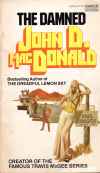
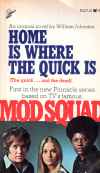
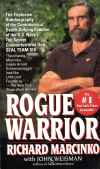


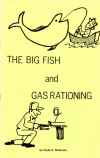
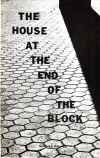 I bought these books at Redeemed in the local interest section because I thought they were both little reminisciences of life in the Ozarks. They’re very short–each about six pages or so (but I’m counting them as two books, dammit). But I was wrong. They’re short and independent like this because their the tracts of a local Baptist congregation, either available as a pickup for members or as leave-behinds as the Brothers and Sisters visit homes in the area.
I bought these books at Redeemed in the local interest section because I thought they were both little reminisciences of life in the Ozarks. They’re very short–each about six pages or so (but I’m counting them as two books, dammit). But I was wrong. They’re short and independent like this because their the tracts of a local Baptist congregation, either available as a pickup for members or as leave-behinds as the Brothers and Sisters visit homes in the area.